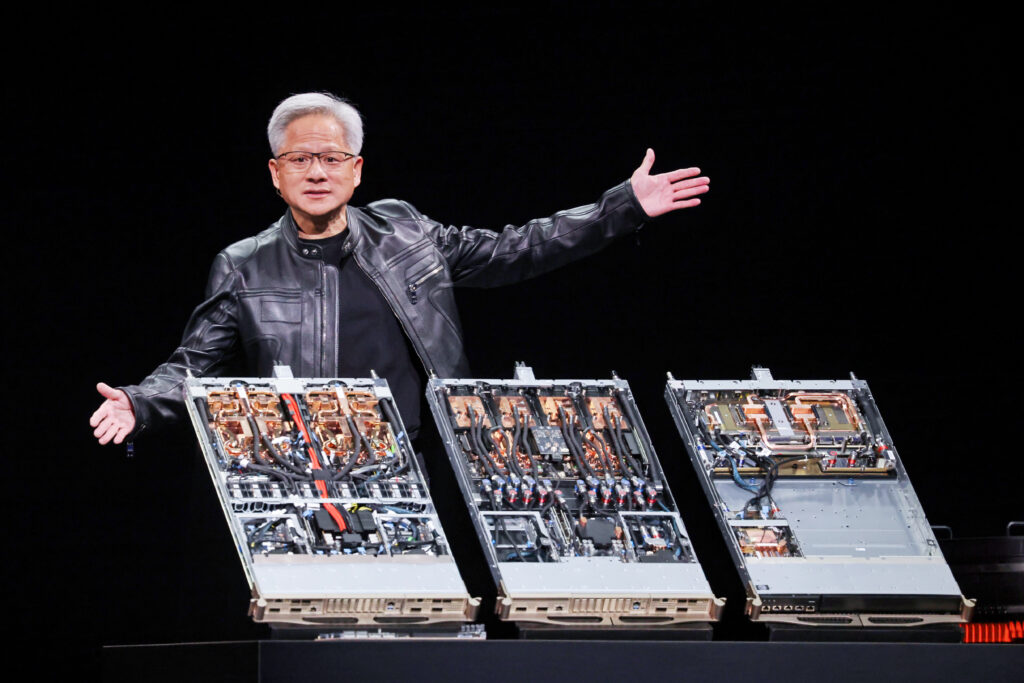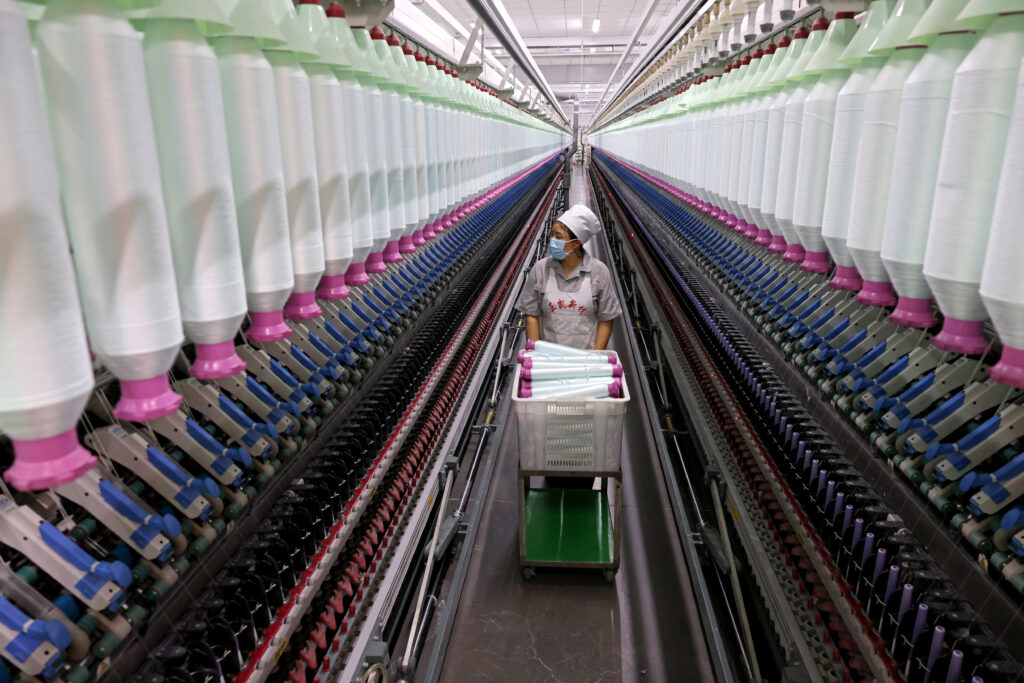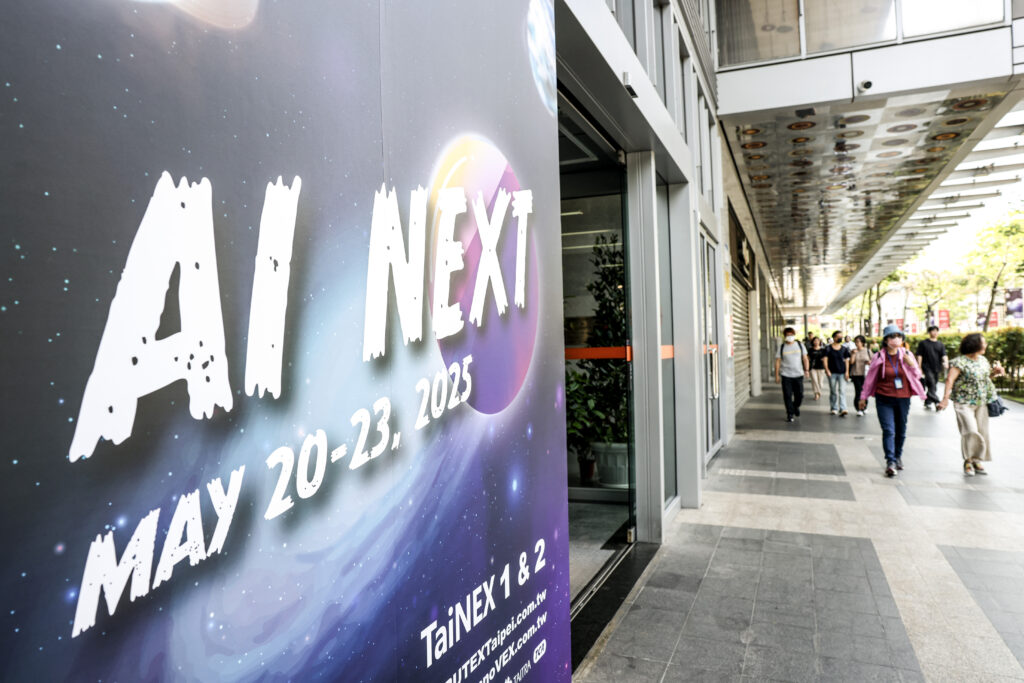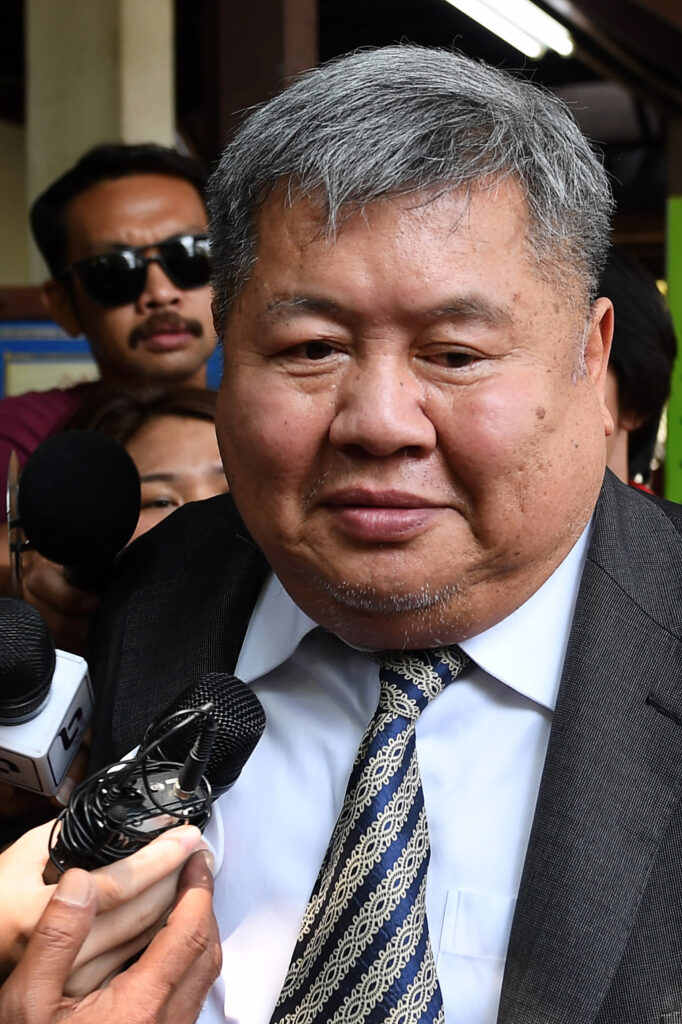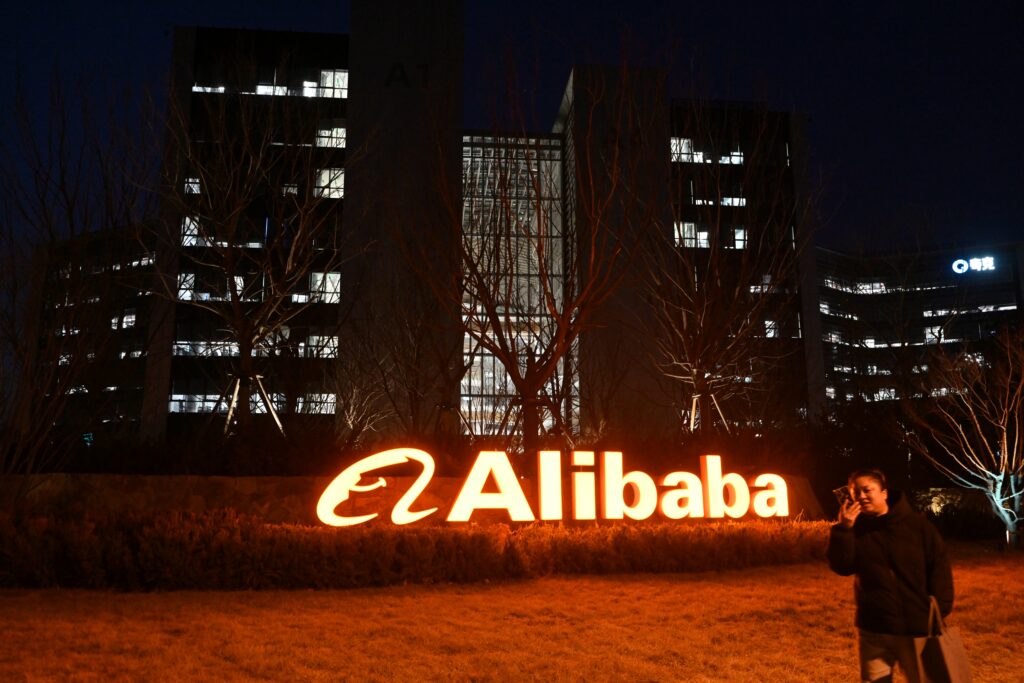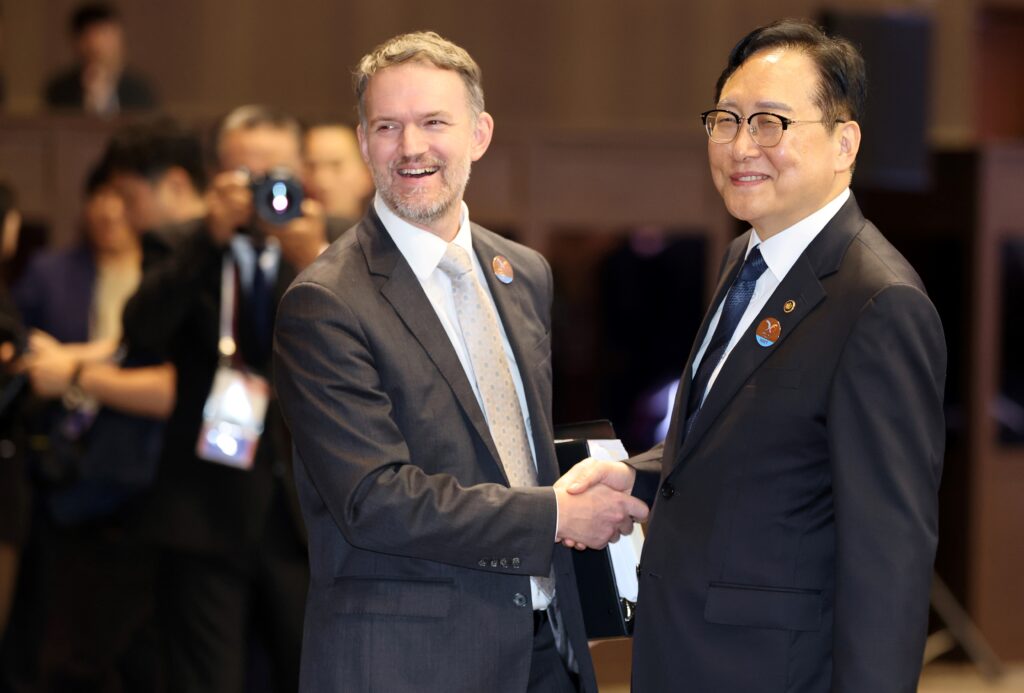Nvidia unveils plan for Taiwan’s first ‘AI supercomputer’
Nvidia boss Jensen Huang announced plans for Taiwan’s first “AI supercomputer”, as he showcased on Monday the company’s latest advances in artificial intelligence.Global chip giants have gathered in Taiwan for the island’s top tech expo, Computex, as the sector grapples with the impact of US tariffs and disrupted supply chains.Huang said Nvidia would work with Taiwanese tech giants Foxconn and TSMC as well as the government to build Taiwan’s “first giant AI supercomputer here for the AI infrastructure and the AI ecosystem”.”Taiwan doesn’t just build supercomputers for the world… we’re also building AI for Taiwan,” Huang said in a keynote address, describing the island as the “centre” of the industry.”Having a world-class AI infrastructure in Taiwan is really important.” Taiwan-born Huang also spotlighted a further upgrade to Nvidia’s Blackwell processing platform, as well as new hardware and software for robotics and “AI agents” that can perform company tasks.And he announced a new version of Nvidia’s NVLink technology, enabling customers to build semi-custom AI infrastructure.”In 10 years time, you will look back and you will realise that AI has now integrated into everything and in fact we need AI everywhere,” Huang said, wearing his trademark black leather jacket.Computex will draw computer and chip companies from around the world to Taiwan, whose semiconductor industry is critical to the production of everything from iPhones to the servers that run ChatGPT.Taiwan produces the bulk of the world’s most advanced chips, including those needed for the most powerful AI applications and research.Qualcomm CEO Cristiano Amon announced the company planned to expand into data centres, but he did not elaborate.Top executives from MediaTek and Foxconn will also speak at Computex, where advances in moving AI from data centres into laptops, robots and cars are in the spotlight.Tech expert Paul Yu told AFP the industry was at a “critical juncture” for AI hardware development.”Over the past two and a half years, significant investment has driven rapid advances in AI technology,” said Yu, of Witology Markettrend Research Institute.He added that “2025 to 2026 will be the crucial period for transitioning AI model training into profitable applications”.- ‘Taiwan to continue to thrive’ -While US tariffs were the biggest issue facing the sector, most companies at Computex “will shy away from addressing tariffs directly as the situation is too uncertain”, said Eric Smith of specialist platform TechInsights.Last month, Washington announced a national security probe into imports of semiconductor technology, which could put the industry in the crosshairs of President Donald Trump’s trade bazooka and inflict potentially devastating levies.Since taking office in January, Trump has threatened hefty tariffs against many of America’s biggest trade partners with the aim of forcing companies to move production to US soil.Export-dependent Taiwan has pledged to increase investment in the United States as it seeks to avoid a 32 percent US tariff on its shipments.But there are concerns the island could lose its dominance of the chip sector — the so-called “silicon shield” protecting it from an invasion or blockade by China and an incentive for the United States to defend it.TSMC, the Taiwanese contract chipmaking giant, has unveiled plans to inject an additional US$100 billion into the United States, on top of the US$65 billion already pledged.TSMC-supplier GlobalWafers also announced plans last week to increase its US investment by US$4 billion as the Taiwanese company opened a wafer facility in the US state of Texas.Competition is intensifying as US export restrictions on certain AI chips to China drives local players to develop their own. Chinese tech giant Xiaomi will invest nearly US$7 billion in developing high-end smartphone chips, the firm’s founder said on Monday.Huang was optimistic on Friday when asked about the impact of tariffs on Taiwan, saying the island would “remain at the centre of the technology ecosystem”.”I fully expect Taiwan to continue to thrive… before, after, throughout,” Huang told reporters.
